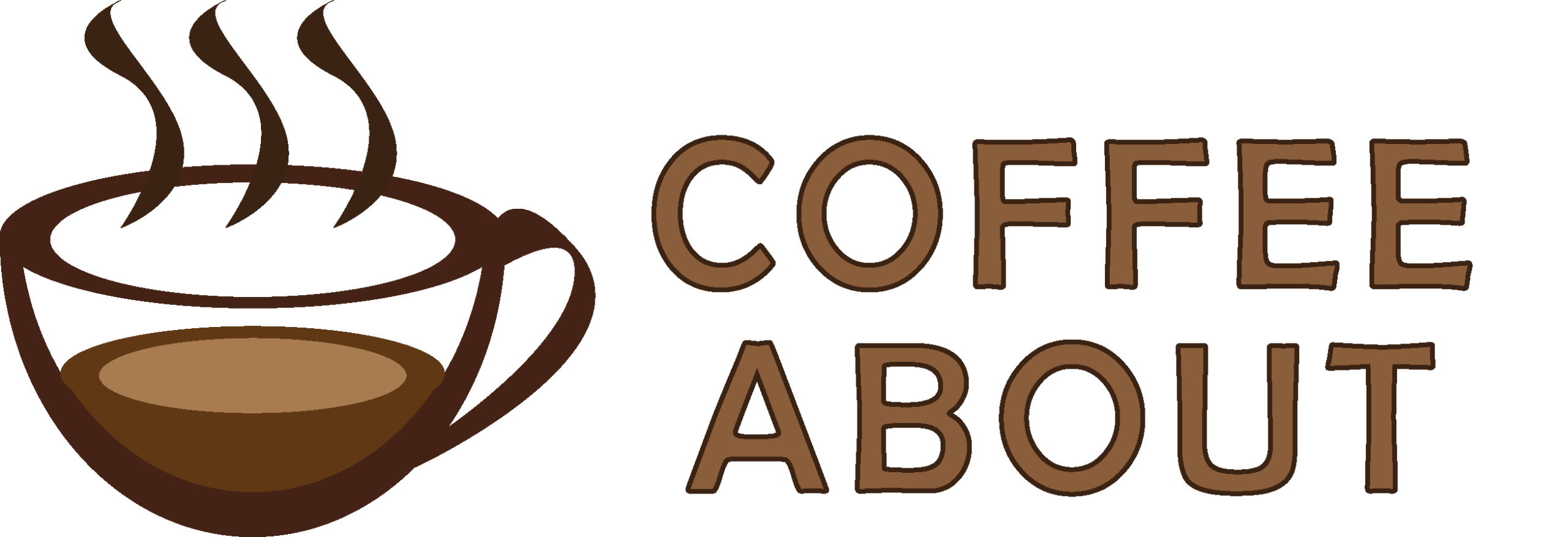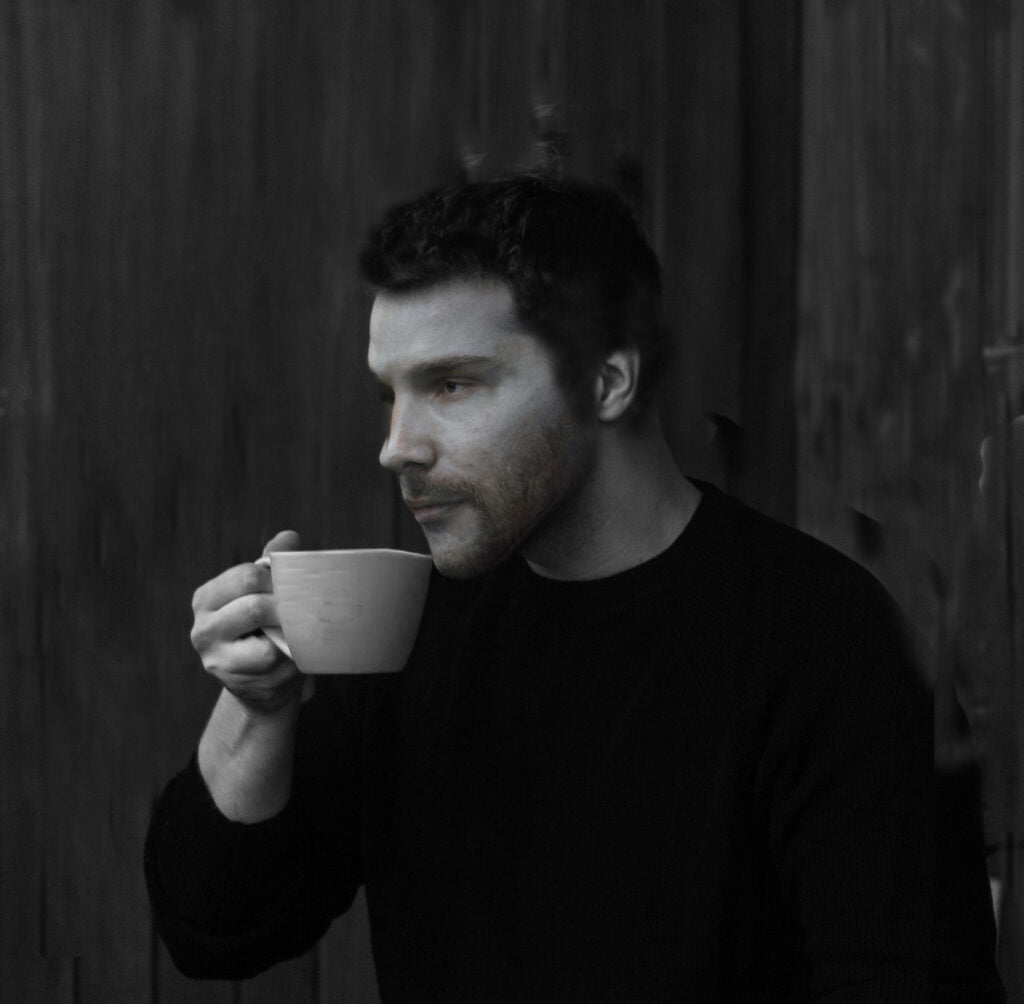The water temperature you use is crucial for brewing optimal French press coffee. While opinions vary, there is an ideal range that extracts the perfect balance of delicious flavors.
The perfect water temperature for French Press Coffee is between 195 and 205 degrees. It’s just below the boiling point of water at sea level, which is 212 degrees.
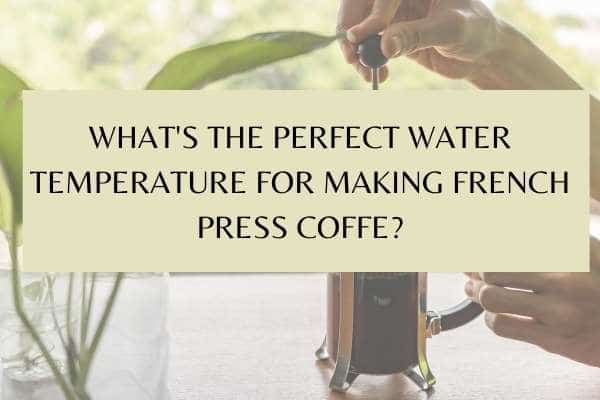
In this article, I’ll break down the ideal water temperature needed to make exceptional French press coffee. I’ll explain how water temperature impacts extraction and flavor and how you can tweak the temperature depending on the roast of coffee beans.
How temperature of water affect the extraction of coffee flavors
Water temperature is a critical factor in French press brewing, affecting the flavors extracted from the coffee grounds.
Overly hot water (above 205°F) can lead to the over-extraction of bitter and unpleasant compounds, resulting in a harsh and unenjoyable brew lacking any sweetness.
On the flip side, water that’s too cool, under 190°F, won’t fully extract all the delectable oils and aromatic compounds of the beans. The result is a bland coffee that’s devoid of depth and body.
The ideal temp to hit that sweet spot of balanced extraction is 195-205°F. This allows the water to extract the perfect mix of aromatic fruity acids along with the caramelized sugars and chocolate notes for a nicely balanced and nuanced cup!
Also, the National Coffee Association and Speciality Coffee Association recommend a temperature range of 195-205 degrees Fahrenheit, backed by scientific findings that this range promotes ideal extraction.
Going a bit lower or higher really changes the flavor profile, so accurate water temp is key for French press perfection.
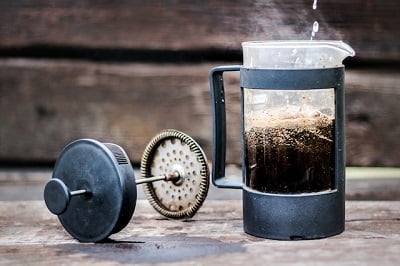
Tweaking the temperature for different types of coffee roasts
The ideal water temperature also varies depending on whether you’re brewing light or dark roast coffee in your French press.
Lighter roasts are more dense and delicate and require higher heat to extract flavor before getting bitter. For light roast beans, start from the higher end of the range i.e. 205°F, and adjust from there to find the sweet spot.
Dark roasts are dry and brittle and extract flavors more rapidly than lighter roasts. For dark roasts, it’s recommended to use water at 185-195 degrees to avoid over-extraction and bitter flavors.
It’s all about unlocking the specific flavor potential of each bean’s unique roast profile. With some tweaking, you’ll dial in the ideal temperature to highlight the tasty notes in any French press brew!
If you buy beans directly from roasters, I would suggest asking your roasters for their expert recommendations as they know about the delicacy of their beans more than anyone else!
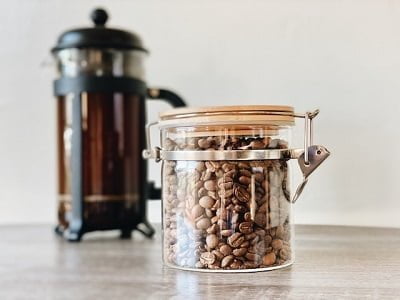
How to measure the temperature of French Press
If you are an idealistic person, I recommend you buy the kitchen thermometer for yourself.
But to be honest, the precise temperature isn’t as critical as long as it stays within the 195-205 degree range. Taste variations within this range are relatively subtle, and achieving this temperature is straightforward even without a thermometer.
Simply heat the water in a pot until it reaches a boiling point and then remove it from heat. Let the water cool for 30 seconds to 1 minute (based on ambient temperature). Then, pour the water into the French press carafe, which already contains the coffee grounds.
You can invest in temperature control Electric Kettles to measure the temperature precisely. These kettles let you select a temperature and will heat the water to that exact heat.
Just set it to around 200-205°F and you’re good to go.
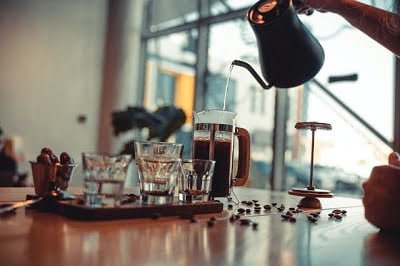
Check our latest guide on Best Electric Kettle For French Press
How to keep your French Press Coffee Warm?
Keep your French press coffee warm by adopting a few simple recommendations.
- One of the keys to maintaining heat in your French press brew is preheating your press. Give it a hot water rinse to get the carafe nice and warm before adding your coffee and water.
- You can also invest in an insulated, double-walled stainless steel French press. The dual walls retain heat for much longer.
- During the steeping process Ensure the lid is intact and properly set on the French Press to seal in the warmth.
Tips to make perfect French Press Coffee
1- Start with fresh dark roasted coffee beans.
2- Grind the Coffee beans to coarse settings in a Burr Grinder
3- Maintain the right coffee-to-water ratio. I recommend using a 1:15 ratio, one part coffee to 15 parts water, for a strong cup of French Press Coffee.
4- After adding water, stir the coffee-water mixture evenly to ensure uniform extraction and a balanced flavor profile.
5- Let the coffee steep for about 4 minutes before pressing down the plunger.
6- Push the Plunger slowly and evenly – It will Prevent over-agitating and keep the brew clear.
FAQs
Can you put boiling water in a French press?
No, it is not recommended to add boiling water in a French Press. The boiling water reaches 212 degrees Fahrenheit which is too hot for brewing Coffee.
Allow the water to cool for 30 to 60 seconds after boiling to bring its temperature within the optimal range of 195 to 205 degrees.
Is it OK to Reheat French Press Coffee?
No, it’s not a good practice to reheat French press coffee. The coffee will lose its nuanced flavor and turn bitter if reheated.
Even just leaving it on the hot plate for too long degrades the quality. For the freshest, richest taste, brew the amount you’ll drink right away and avoid reheating.
Other French Press Guides
